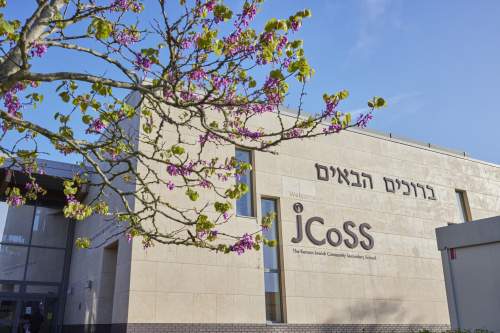JCoSS has revealed that its new admissions policy – revised in the light of the recent Court of Appeal judgment affecting all Jewish schools – will seek to find ways to count people in rather than to exclude them.
Under the JCoSS policy, prospective students and their parents will be invited to demonstrate their engagement with Judaism through a wide range of routes, such as through synagogue membership, education, charitable work, sport or culture. It will avoid a points system or making synagogue attendance mandatory in line with its commitment to be open to all Jews. Distance from the school will continue to be used as a tie-break, with successful applicants expected to come from across North London and South Hertfordshire.
Explaining the policy, Headteacher, Jeremy Stowe-Lindner, will say:
“JCoSS’s ethos is all about inclusion. Everything we teach and everything we do will be designed to welcome all Jews, whatever their backgrounds, beliefs or abilities. Our admissions policy is only one small part of that inclusive approach but is a good example of it.”
And, in light of the huge interest in school, he is telling parents:
“Many people are really excited by the school’s ethos and commitment to excellence at all levels. As a result, there is concern among some parents that they will not get in. To them I say this:
“Nobody knows how many applicants JCoSS will have, but it will certainly be easier to get into the school in its first year as there will be no siblings and we know that parents who already have older children at secondary school often choose to send brothers and sisters to the same school.
“So if JCoSS is your first preference, then put it first on your form. Any other strategy could result in you being assigned a place elsewhere, when JCoSS could have offered you a place.”
JCoSS has had no choice but to revise its original admissions criteria in light of the court ruling, to comply with the law. Governors have, however, given a guarantee not to confuse parents unnecessarily by retrospectively changing the criteria for the 2010 intake, instead commiting to review the policy in 2011.




